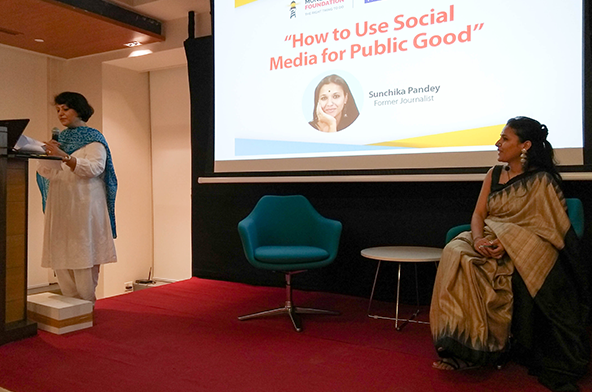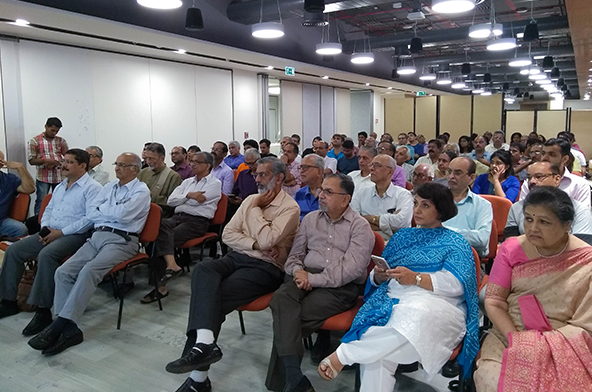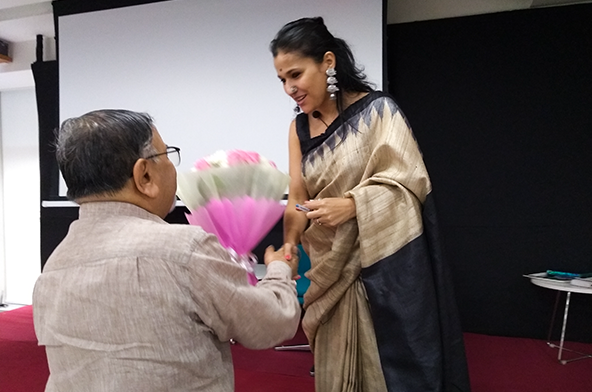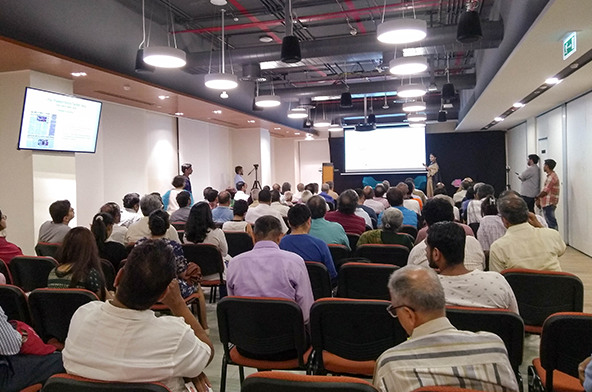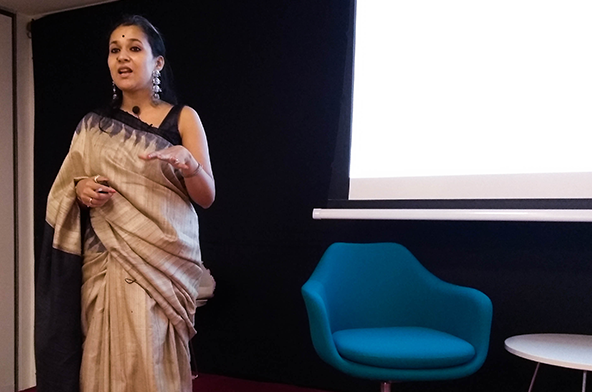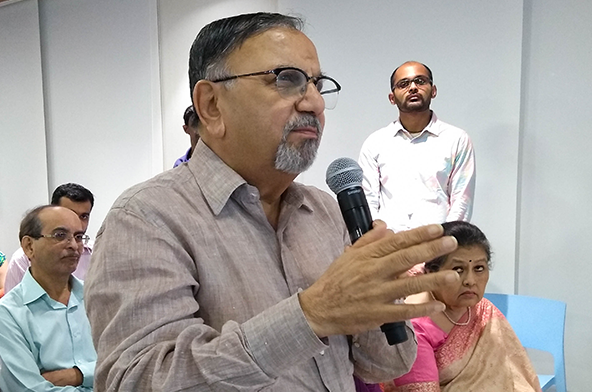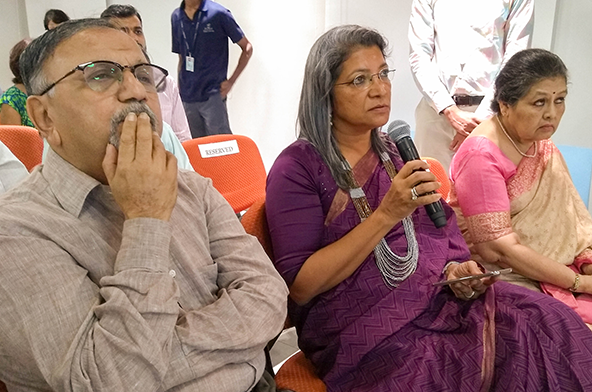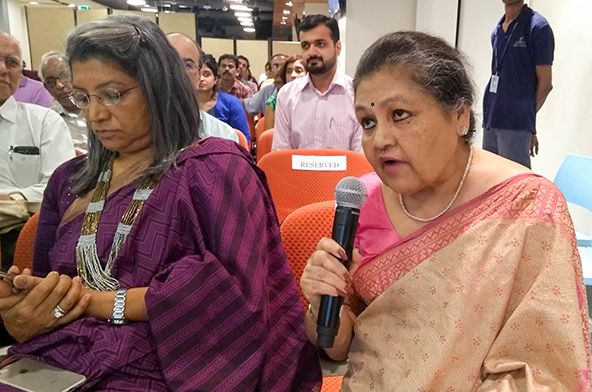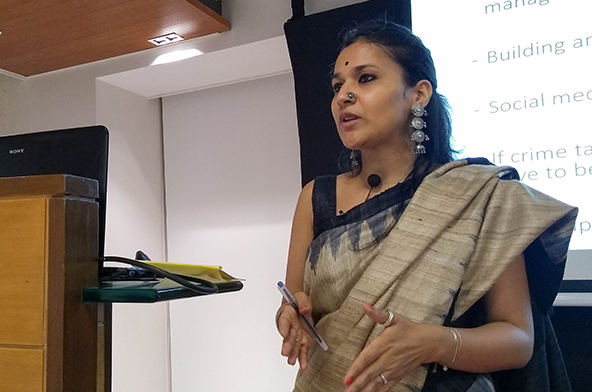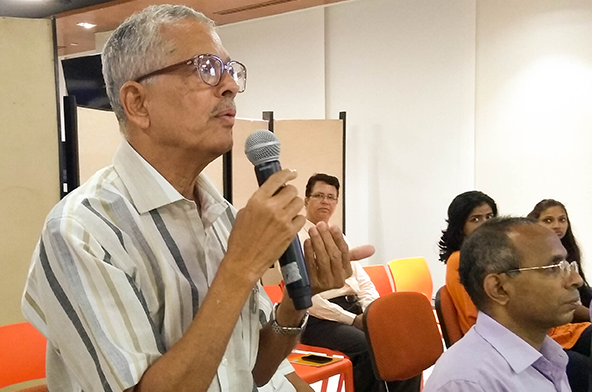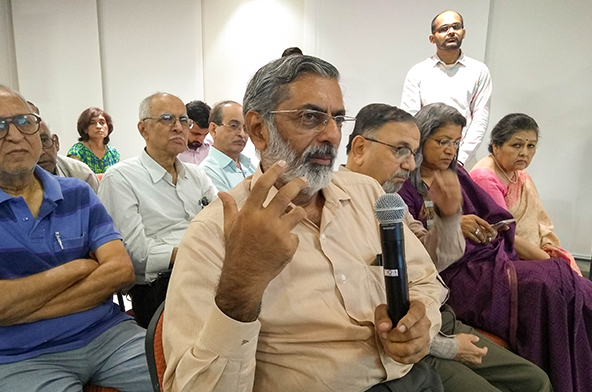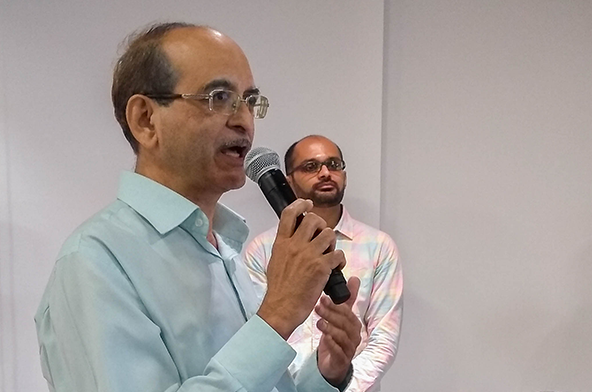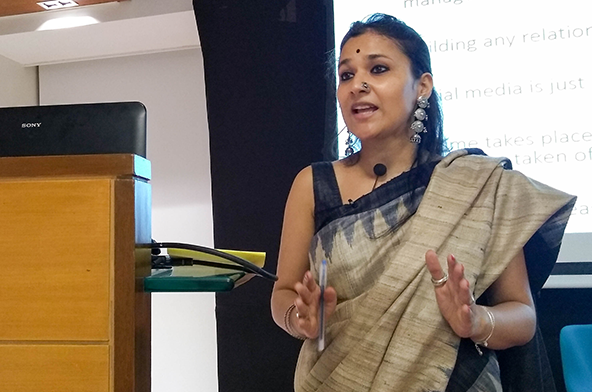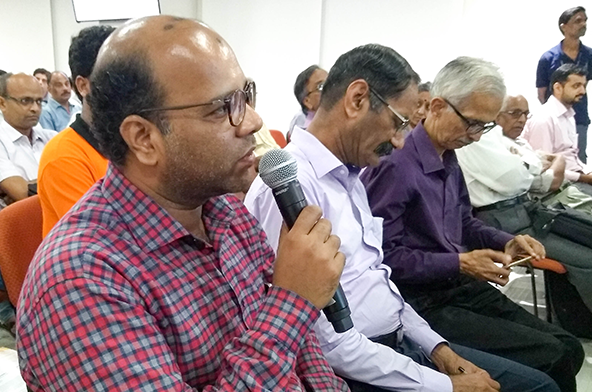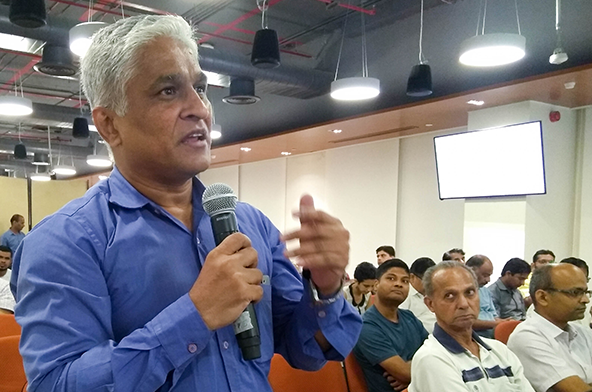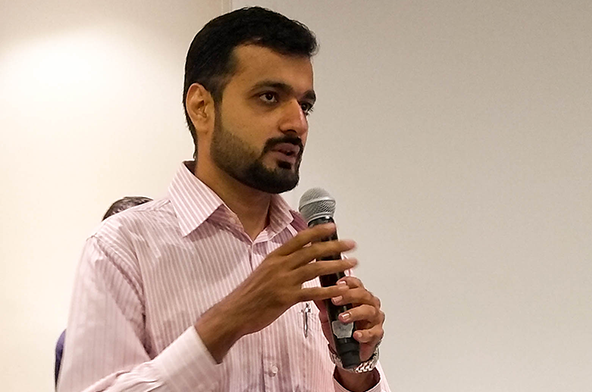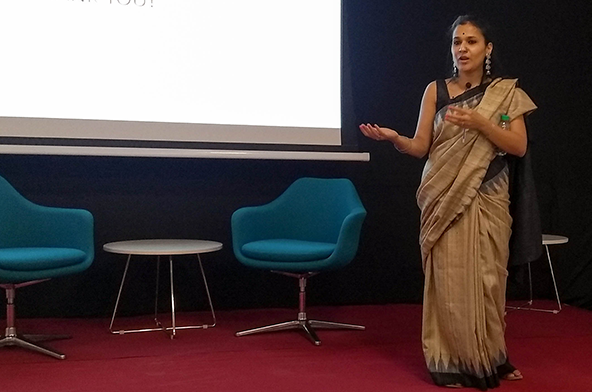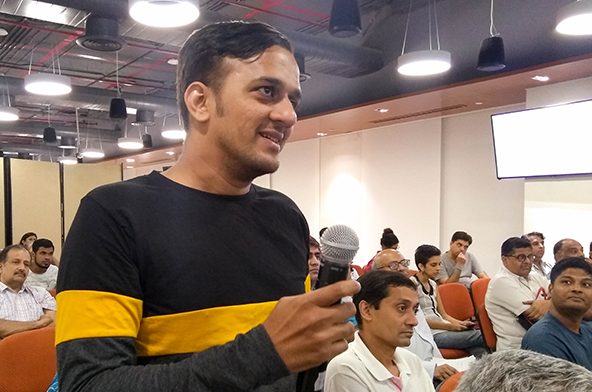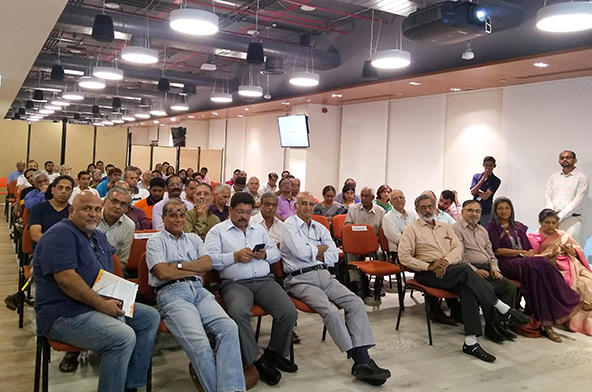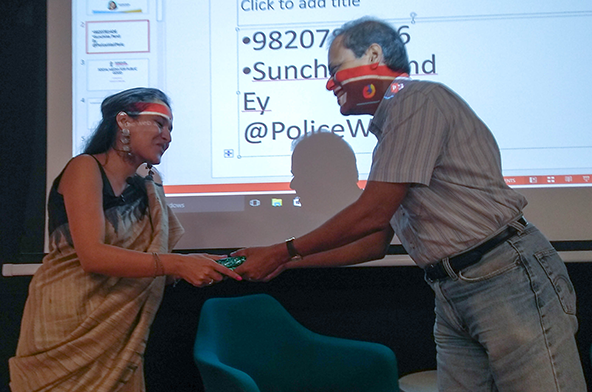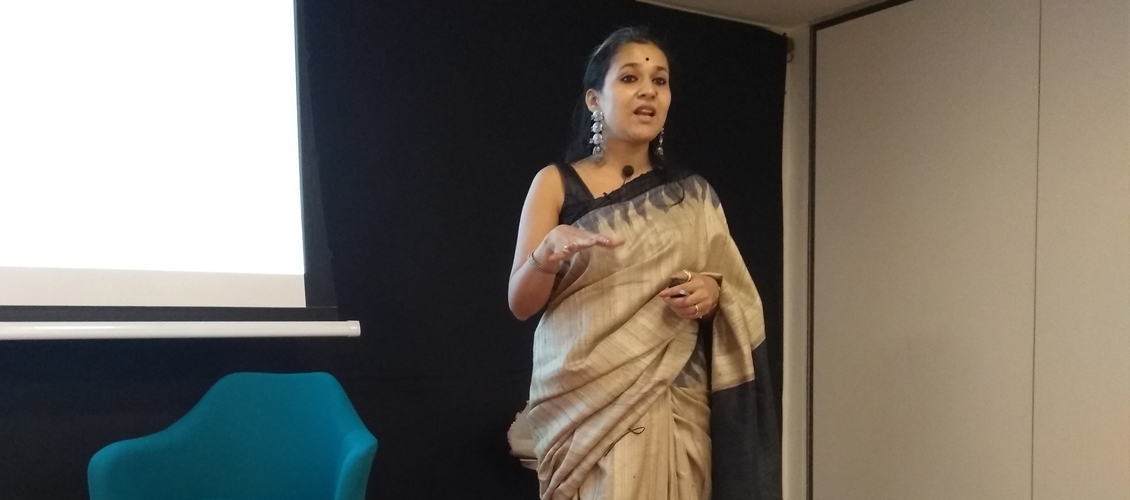
"Social media is a good medium to bring about positive changes in the society. Using social media for public good is more than just reputation management it is about relationship-building. However, we must remember that social media is just a medium an agency for communication. If crime takes place offline, it can only be reported online action will have to be taken offline," says Sunchika Pandey, a consultant for the Mumbai Police s social media team. She was speaking at a special seminar organized by Moneylife Foundation on "How to Use Social Media for Public Good".
Ms Pandey, who was crime reporter at NDTV, delivered a clear message that the most powerful source used to 'spread the word' is the one that directly connects to a larger audience which social media does efficiently if utilised properly.
She is entrusted by Mumbai Police to keep their official Twitter account sensitive and politically correct. @MumbaiPolice handle on Twitter is quite well-known for its quick wit and smart handling of complaints that it receives.
The twitter handle of Mumbai Police (@MumbaiPolice) has 4.64 million followers. The success of @MumbaiPolice has lead to a type of revolution with several government departments and police from various places joining Twitter and helping citizens. This also helped government to be more transparent and responsive while handling grievances.
Fighting misinformation is one of the biggest challenge on social media, Ms Pandey says adding, A lie can travel halfway around the world before the truth can get its boots on. In this age of rampant misinformation, it is important to identify and stop it before it travels and causes harm. Misinformation can originate from anywhere including the verified handles. However, this does not mean it cannot be addressed.
She shared an example of one tweet by writer Shobhaa De, who had posted a photo of a very fat person in khaki taking a nap on a chair. A punny tweet by Ms De needed some fixing we did it for her, Ms Pandey said.
Ms Pandey began the session talking about her journey as a journalist and a field researcher to a content marketer and finally a social media strategist. She spoke about how challenging it was a transformation it was to go from Police force to Police Service. As she leads the team that handles Mumbai Police s Twitter handle, she talked in depth about how it has become important tool in changing public perception of Mumbai Police.
Ms Pandey used Uttar Pradesh Twitter Seva to illustrate the power of social media in increasing response time on complaints. She talked about how women in distress in UP have used twitter to highlight a case where women on a train were being abused. The twitter handle of UP police diligently responded to their complaints and immediately arrested the culprits. She also provided an example where UP police were able to reunite families by solving a missing persons case.
After a slew of examples displaying how twitter has been used by the Police in Mumbai and UP to fight crime, Ms Pandey highlighted how information on twitter should be taken with a grain of salt. Before blindly sharing the information presented on twitter, one should consider whether it is factual or just rampant misinformation. Rumours and misinformation are a serious problem as they are readily shared by the gullible public, she said.
Finally, she talked about how its important on social media to not consider the numbers followers, and following but by social outreach.
She insisted that twitter is a medium where just a tweet a day is not going to be help your cause. To be effective, one should not leave their social cause mid-way but support it the whole way through by following it up with tweets, she added.
The session helped the attendees gain a better understanding of social media and the nuances of utilising this platform for initiating social change. With the world around us getting digitised rapidly, social media in the future will inevitability become an important tool to decide the success or failure of an idea. With something as powerful as social media available to everyone in the 21st century, it becomes imperative that it is utilised responsibly.


